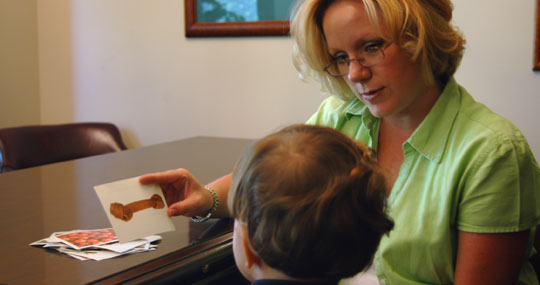Acountability
While homeschooling does offer the allure of flexibility of learning materials, delivery and time, these pluses can turn into negatives if it is assumed that no accountability is necessary at all.
3 Rules of Accountability
1. Parent to School Board/Government
We are particularly fortunate because we have multiple school boards that solely serve the homeschooling population in our province of Alberta. This is a tremendous help as we are assigned to a case worker who travels to our house twice a year to consult with us about our goals, curriculum, activities, expenses, etc.
It helps to know that even though we have chosen homeschooling, we are not completely alone. The case worker is also available throughout the year free of charge for questions or advice when difficult situations arise. They also offer great ideas about what is working for other families in similar circumstances.
Another added bonus of this is that our children's education is documented with a public school board that is recognized by the government of Alberta. This makes the transition to high school and college much easier than if we just went it alone. Part of this is our school board does yearly provincial standard testing, which is kept on file, to help make sure our children are either on par or ahead of children in the public school system.
2. Children To Parent
Children that are homeschooled can quickly fall into the trap of thinking nobody is watching whether or not they are completing their lessons and work. We all know that children will test boundaries when the opportunities arise. They may be banking on the fact that their parents are busy working or doing chores around the house and trust them to do the work on their own.
So precautions must be taken to ensure that the accountability is strong in this area. Children should be given deadlines or goals for each area of study daily. As an example, many curriculum are divided into lessons, so as parents, we may tell our children that they are expected to finish lesson 101 in each subject today.
Some curriculum may encourage more than one lesson per day. Whatever you decide is fine as long as your expectations are expressed and you provide all the materials and help needed to successfully complete the work.
Although children may seem like they don't like accountability and vehemently oppose it, in reality, most children are somewhat comforted to know that their parents care enough about them to have rules or guidelines.
We would also suggest that accountability not be solely based on the quantity of work being done but rather on quality also. It is completely reasonable to not only expect a lesson to be completed, but also to expect a certain level of proficiency as well. Just filling in blanks with wrong answers doesn't accomplish anything.
This accountability also requires that there be consequences when work is not done properly. Unless their are attenuating circumstances, like inability to understand or sickness,children need to know that there is a cost to not being accountable. We find removal of electronic privileges work quite well in this regard.
3. Parent to Children
Even though parent to children is number three,that doesn't mean it is the least important. In fact, we believe it is actually the most important of the three. With the first two, you will get minimal results, but when parents are also accountable to their children, homeschooling all comes together.
Eventually, our kids will reach the age to move out and attend college or start life on their own. What kind of education and how well we have provided it to them will be instrumental to them achieving their goals in life.
Homeschooling is not a cop-out or an easy answer to a busy or transient lifestyle. In fact, if done right, homeschooling can be much more labor intensive for the parent than if their child went to public school. As parents, we now replace the teachers and supporting staff to some degree, depending on the curriculum chosen. It is us who must correct, verify, explain, and encourage our children.
The easiest way to accomplish this is by correcting your children's work on a daily basis. By doing this, you can catch potential issues before they grow into bigger problems. This is a major bonus of homeschooling!
If you can explain or even re-teach an area of concern immediately, you will prevent more frustration and confusion down the road. Remember, most courses such as English, Math, and Science involve building-type learning. What the children learn this week is used to build upon next week and so on.
Another important aspect of parents being accountable is that when we show we are involved and care deeply about our children's education, usually in return,they will be more accountable to us. Instead of a potentially adversarial relationship, we are building a more symbiotic one. Yes we are still in charge, but we can do so with love and respect at the same time.
These 3 rules of accountability in homeschooling are your starting point to a great homeschooling environment.
Yes you can do this. We want to help in any way possible. Looking for ideas? Have an article suggestion? Drop by http://www.ucanhomeschool.com and let us know how we can help.
You have read this article Home Schooling
with the title Home Schooling. You can bookmark this page URL http://apt3e.blogspot.com/2014/03/3-accountability-rules-of-homeschooling.html. Thanks!







